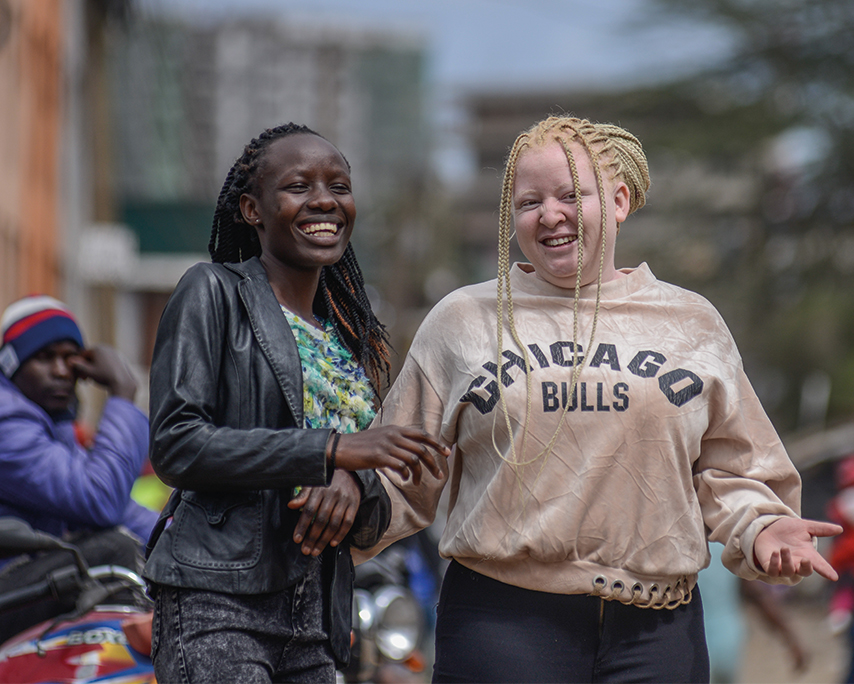International Albinism Awareness Day
The role of content creators and publishers in Albinism awareness
In today’s fast-moving digital world, content is being created at an unprecedented pace. Across Africa, professionals—from journalists to health workers, advocates to researchers—are using their platforms to shape public understanding. However, amid this growing sea of information, one thing remains constant: the need for accuracy, dignity, and context, especially when it comes to sensitive issues such as albinism.
Despite greater awareness today, misinformation about albinism still circulates widely across the continent. In some places, myths such as linking albinism to superstition or misunderstanding still persist. In others, silence continues to surround the health, rights, and lived experiences of people with albinism. Breaking that silence requires not just one voice but a concerted effort among professionals who create, curate, and share content. This is where collaboration between content creators and publishers matters.
Content creators are the first witnesses. They are often closest to the stories, whether documenting real-life experiences, sharing expert knowledge, or capturing the nuance of community realities. Their work brings much-needed visibility to issues that are too often overlooked.
But visibility alone is not enough. Stories need context. Claims need verification. Messages must be presented clearly and respectfully to reach the intended audiences and to do so in a way that fosters understanding rather than confusion or harm. That is where thoughtful publishing comes in, not as gatekeeping but as a partnership.
Publishers, whether independent editors, media houses, or advocacy-based organisations, have the tools and experience to help shape content into forms that educate, inform, and endure. That might mean simplifying complex medical language, translating into local languages, or ensuring that stories about people with albinism are told with respect and consent. Done well, publishing helps extend the reach and impact of meaningful content. It is not about owning the story but about supporting it with care.
For professionals across the health, education, media, and human rights sectors, this kind of collaboration is both a technical process and ethical responsibility. Ensuring that information about albinism is not only accurate but also empowering is a shared responsibility. It requires listening to lived experiences, centring affected voices, and creating spaces for honest dialogue.
The good news is that we do not have to start from scratch. Across Africa, many individuals and organisations are already doing this work by producing community booklets, inclusive school materials, advocacy campaigns, and personal narratives. The opportunity now is to connect more of these efforts, learn from one another, and commit to raising the standard for how albinism is represented.
Whether you are developing a public health guide, editing a teacher training manual, or supporting a community blog, the core question remains the same: Are we telling the story in a way that respects truth, protects dignity, and builds understanding?
When content creators and publishers work together with humility and intention, information becomes more than knowledge; it becomes a tool for justice.



